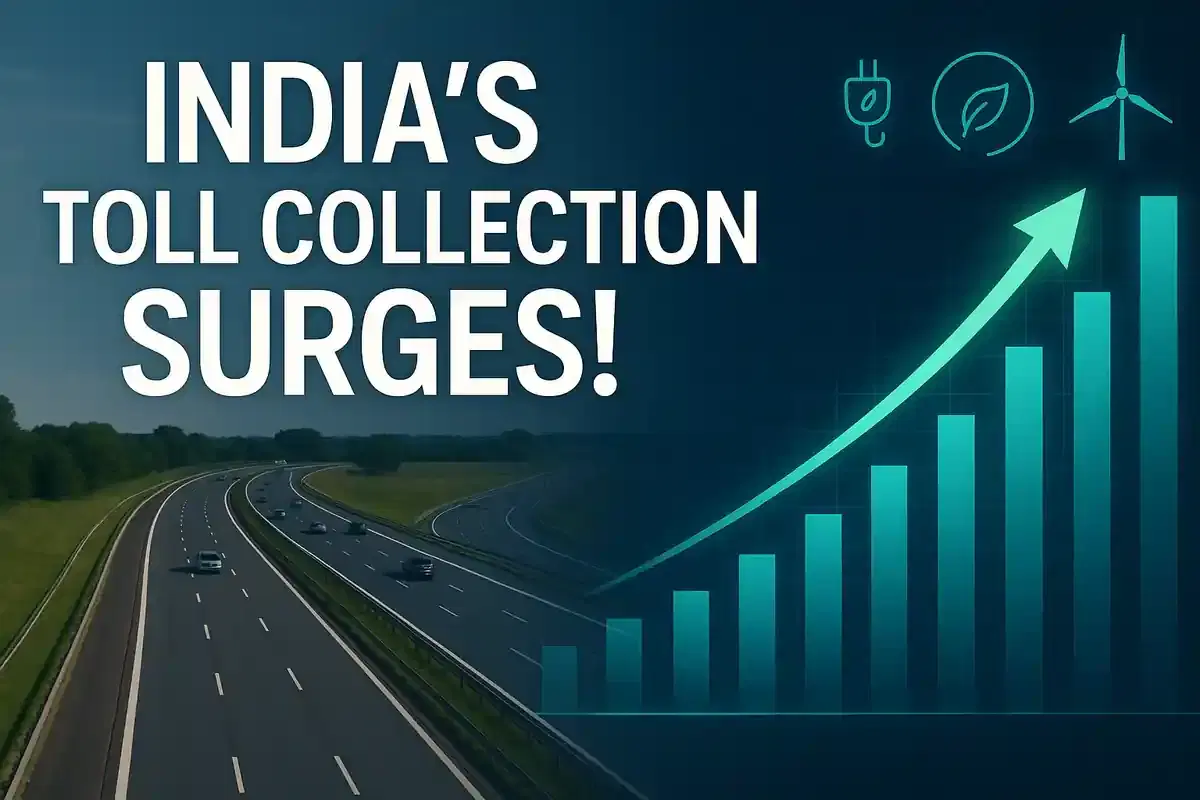India's Annual Toll Collection Set to More Than Double to ₹1.4 Lakh Crore in Two Years, Minister Says
Industrial Goods/Services
|
28th October 2025, 7:39 PM

▶
Short Description :
Detailed Coverage :
Road Transport and Highways Minister Nitin Gadkari has announced that India's annual toll collection is projected to more than double, reaching ₹1.4 lakh crore in the next two years, up from the current ₹55,000 crore. This projection is driven by the government's commitment to developing world-class road infrastructure across the country. Gadkari, speaking at a Confederation of Indian Industry (CII) conference, outlined a roadmap focused on creating roads that are safe, sustainable, comfortable, and economically viable. He emphasized that robust infrastructure is the backbone of the economy, capable of boosting industry and trade, attracting capital investment, generating employment, and raising per capita income. Furthermore, the minister plans to promote the use of construction equipment that runs on alternate fuels to curb pollution and reduce the import of fossil fuels. To encourage this shift, the government is considering offering road contractors interest-free loans for five to seven years on the purchase of such environmentally friendly equipment. **Impact** This development signals a significant push in India's infrastructure sector. The projected surge in toll collection suggests increased vehicular movement and economic activity. Companies involved in road construction, toll management, road materials, and potentially advanced construction equipment are likely to see positive impacts. The focus on alternate fuels also points to future opportunities in sustainable technology within the construction industry. **Rating**: 8/10 **Difficult Terms**: * **Toll collection**: The revenue generated from charging fees to vehicles for using specific roads, bridges, or tunnels. * **World-class road infrastructure**: Road networks that meet the highest global standards in terms of design, quality, safety, efficiency, and technological integration. * **Confederation of Indian Industry (CII)**: A leading industry association in India, representing and promoting the interests of Indian industry. * **Alternate fuels**: Fuels used in engines as a substitute for conventional petroleum fuels, such as Compressed Natural Gas (CNG), electricity, hydrogen, or biofuels. * **Fossil fuel**: Fuels such as coal, oil, and natural gas, formed from the remains of ancient organisms over millions of years.